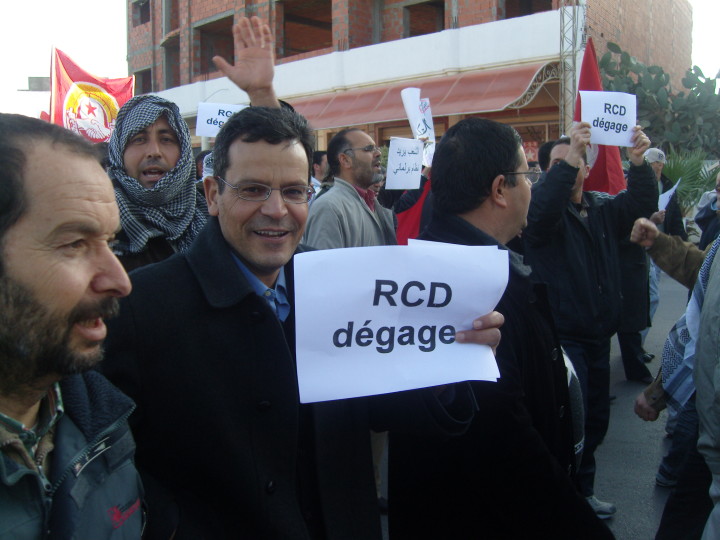On the fifth anniversary of its revolution, Tunisia has much to celebrate, many lessons still to learn, and a lot to teach other countries. Upheaval in the region and Tunisia’s own fitful democratic transition make it easy to adopt a pessimistic view of the future. Yet as grim as things may sometimes look, there is no choice but to stay the course towards the freedom and social justice that Tunisia is doggedly pursuing.
By Ammar Abu Zayyad – for Open Society Foundations
From the Higher Authority for Realization of the Objectives of the Revolution to the Tunisian National Dialogue Quartet, Tunisia’s civil society has played a key role in steering the country toward dialogue and compromise. Last year, the Quartet, a coalition of civil society groups formed in the summer of 2013 when Tunisia teetered between democracy and chaos, was awarded the Nobel Peace Prize “for its decisive contribution to the building of a pluralistic democracy in Tunisia in the wake of the Jasmine Revolution of 2011.” Beyond averting political crisis, civil society continues its work across different fields to build a culture of debate and civic engagement, furthering reform agendas and asserting principles of accountability.
With successes like these, it is essential to safeguard Tunisian civil society’s role and assert the government’s commitment to freedom of association. Tunisia can set an example through balancing that commitment with measures that ensure transparency and accountability—the alleged lack of which has often been used by governments to clamp down on civil society in the region. Today, Tunisia can show that a more constructive dynamic is possible.
Solid leadership is key to this goal. As the country breathes life into its constitution, establishes democratic practices, and thinks through solutions to challenges across the spectrum, Tunisians themselves must develop their vision for the country. The work of Tunisian civil society is equally invaluable to flesh out new solutions in partnership with the country’s different actors, including the government and parliament.
To facilitate this, significant support from various governments and intergovernmental bodies is needed to implement solutions—in line with the Tunisian vision—for economic development and security and terrorism threats. Civil society and its supporters can help build bridges between Tunisians and their peers in the Arab and global civil society movements.
With input from the Tunisians, regional organizations such as Euromed Rights and the Carnegie Endowment for International Peace play an important role in providing policymakers with a better understanding of challenges and different policy options to address them. On the ground, the Tunisian Forum for Social and Economic Rights, along with others, are incubating debates and developing new and innovative solutions to complex problems.
There is no shortage of analysis of how the Arab uprisings transformed the region. But undeniably, giving Arab citizens a voice has been their most spectacular outcome. Winning the freedom to speak, however, will prove a hollow victory without the needed debate and reflection that can eventually lead to a better future for Tunisia and the region.
Tunisia’s ability to learn, adapt, and adjust has been inspiring. This process, and the country’s persistent pursuit of solutions against all odds, is itself cause for celebration.
For original see: Open Society Foundations










